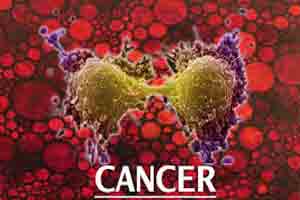- Home
- Editorial
- News
- Practice Guidelines
- Anesthesiology Guidelines
- Cancer Guidelines
- Cardiac Sciences Guidelines
- Critical Care Guidelines
- Dentistry Guidelines
- Dermatology Guidelines
- Diabetes and Endo Guidelines
- Diagnostics Guidelines
- ENT Guidelines
- Featured Practice Guidelines
- Gastroenterology Guidelines
- Geriatrics Guidelines
- Medicine Guidelines
- Nephrology Guidelines
- Neurosciences Guidelines
- Obs and Gynae Guidelines
- Ophthalmology Guidelines
- Orthopaedics Guidelines
- Paediatrics Guidelines
- Psychiatry Guidelines
- Pulmonology Guidelines
- Radiology Guidelines
- Surgery Guidelines
- Urology Guidelines
How depletion of sugar causes cancer cell death ?

In an article published in Science Signaling's January issue for the first time a novel cell death pathway that describes how depletion of sugar caused cancer cell death has been demonstrated.
Previous research have shown that rapidly dividing cancer cells require higher levels of sugar than healthy cells. This dependency on sugar distinguishes cancer cells from normal cells and is often used as a treatment option to kill cancer cells. In reality, the results have not been encouraging. Not all cancer cell types are sensitive to the removal of sugar, and even for the cancers that are sensitive, sugar depletion only slows down the rate of cancer progression. The pathways that sensitise cancer cells to sugar deprivation remains poorly understood.
In the research led by Singapore team under Duke-NUS Associate Professor Koji Itahana, along with a team of collaborators led by Dr. Egon Ogris of the Max F. Perutz Laboratories (MFPL), in Austria, they have demonstrated for the first time a novel cell death pathway that describes how depletion of sugar caused cancer cell death. The article was published in Science Signaling's January issue [1].
Novel role of glucose
It was long believed that sugar served as one of the main energy sources for cancer cells. However, the team discovered that in some cancer cells, tiny levels of sugar that were incapable of providing sufficient energy ensured the survival of the cancer cells. This meant that there is a previously undiscovered role of sugar for survival, besides providing energy. The team subsequently found that sugar has a novel signalling function in cancer cells whereby its deprivation would trigger voltage differences across cancer cell membrane, leading to a flowing of calcium ions into the cells and subsequently cell death.
Novel therapeutic approach
The team speculated that this unique property of sugar in cancer cells could be manipulated for a novel therapeutic approach. By combining the inhibition of sugar intake and the increase of calcium levels in cancer cells, they managed to kill cancer cells while leaving healthy cells intact. Itahana and colleagues also found that certain cancer cells lost the ability to sustain intracellular sugar levels after sugar deprivation and speculated this to be the primary reason why not all cancer cells are sensitive to sugar deprivation. By applying the combination treatment to the suitable cancer cell types, this could be a novel treatment combination against cancer. The team aims to extend their results to develop a new cancer treatment in the future.
The new combination therapy based on this finding are on international patent application no. PCT/SG2017/050208 for "A potential combination therapy using an inhibitor of glucose transport and an intracellular calcium inducer to target cancer metabolism."
For more details click on the link: http://dx.doi.org/10.1126/scisignal.aam7893

Disclaimer: This site is primarily intended for healthcare professionals. Any content/information on this website does not replace the advice of medical and/or health professionals and should not be construed as medical/diagnostic advice/endorsement or prescription. Use of this site is subject to our terms of use, privacy policy, advertisement policy. © 2020 Minerva Medical Treatment Pvt Ltd